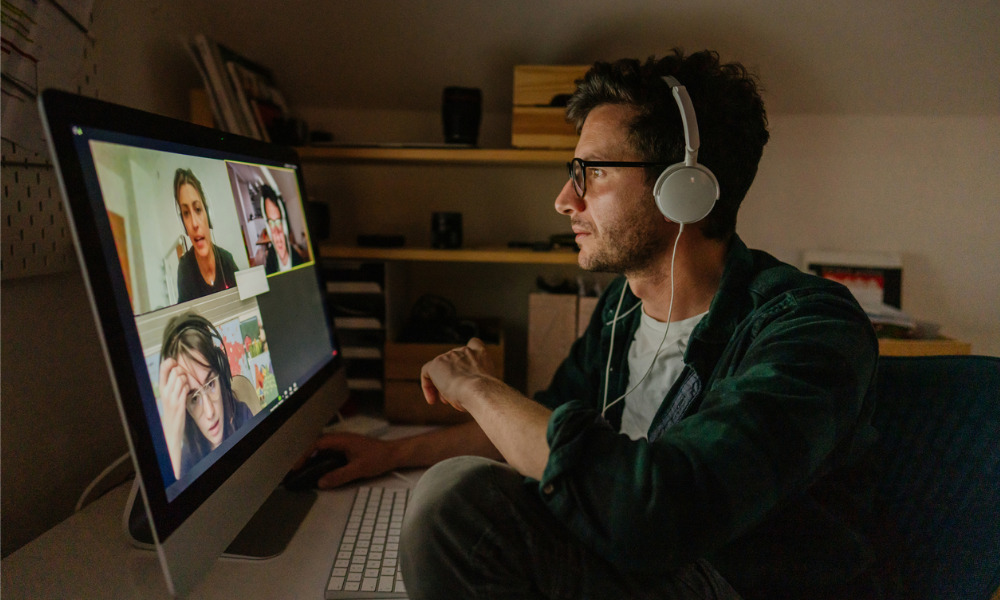
Remote work is no longer a benefit – it's practically essential

Remote work is no longer a benefit – it’s practically essential. The COVID-19 pandemic acted as a catalyst for remote work, allowing employees to work with much more flexibility.
HRD spoke to Mary Duncan, chief human resources officer at CAA Club Group, who revealed how remote work has impacted employee expectations around inclusivity.
Read more: Hiring the best? Amazon CEO Jeff Bezos shares his method
“As we’ve transitioned to a virtual workplace in the last year, our employees’ expectations haven’t changed regarding inclusivity,” she explained. “Just because the majority of us are working physically apart, it doesn’t mean that our employees want to be emotionally apart. This pandemic has been a challenging shared experience, so our managers deliberately and frequently connect with their team members to make sure that no one feels left behind.
“Our sole mission at CAA Club Group is the safety and wellbeing of our Members and that starts with our Associates. It’s a straight-forward but inclusive purpose that has helped guide us through these difficult times.”
One way CAA Club Group managed to implement an authentic approach to belonging in their teams by investing in worth-while technology.
Read more: Amazon CEO Jeff Bezos reveals talent success strategy
“Prior to the pandemic, we found success in implementing social recognition for our employees,” continued Duncan. “We use a great social recognition platform from Workhuman that we call Applause. The platform encourages employees to recognize each other out for great work and show case individual milestones. Daily, we can see upwards of 100 or more recognition moments shared across the platform and on our intranet, showcasing all these great individual accomplishments in real time. This recognition builds team rapport and contributes to a sense of belonging internally – it serves as a good reminder that we are all working towards the same goal. By celebrating people who work hard and are driven by purpose, we break down barriers to inclusivity.”
Embedding an authentic culture of inclusion is tricky at the best of times – throw in a global pandemic and it’s quite the challenge.
“Remote work during the pandemic has made it a challenge for employees to understand and see the ways that they belong in the organization,” Duncan told HRD. “Those live social moments in the office, help people feel connected and informally share information about what’s happening around them, so it was important for us to bolster our internal communication and social recognition programs so that everyone felt included.
“In addition, we wanted to make sure that our employees who were asked to return to in-person work felt like their concerns were heard and their safety was valued. We have 34 retail stores, where we set strong rules in place for social distancing and mask-wearing, and we made sure to provide ample PPE for our employees.”
And whilst a fully WFH structure can present its own set of unique challenges, it also opens up a world of possibilities – particularly in regards to D&I.
“Because remote work is more flexible than requiring employees to come to the office from 9-5, we found that it helps with the diversification of our company makeup,” added Duncan. “We made the choice not to lay anyone off when things were especially volatile, and we stuck to that promise to our employees throughout the pandemic. Remote work allowed us to reach a broader demographic in terms of geography. It also provided more flexibility for working parents or those who are caretakers for other family members.
“Thinking again about the importance of social recognition for a virtual workforce, we made it a priority to emphatically celebrate our diversity and create an inclusive purpose that our employees could rally behind online. We were able to put on a number of programs digitally to highlight our employees’ experiences. For example, we started a series of articles internally to, where we asked employees to share their stories of how they celebrate holidays from their culture. We also support different charities that provide mental health support and another that centers around the experiences of Black Canadian children.
“It was important to find creative ways to use the online tools we had available, like Zoom calls, the Workhuman Cloud and Social Recognition, and even internal articles to show our employees that we are proud to have a strong, diverse workforce.”